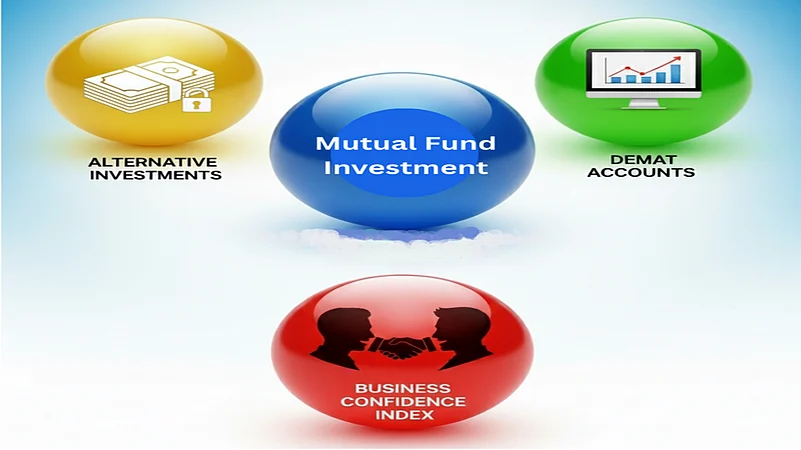Mutual fund (MFs) investments have risen significantly in recent years. While the total asset under management (AUM) grew from Rs 6.1 lakh crore in 2010 to Rs 65.7 lakh crore by March 2025, reflecting a 17.1 per cent compound annual growth rate (CAGR). A major contributor to the rise is the systematic investment plan (SIP), which has made MFs popular among the masses. Notably, investment through SIPs crossed Rs 27,000 in June 2025. According to the 'Equity Mutual Funds: Transforming India's Savings Landscape' report in the Reserve Bank of India (RBI) August 2025 bulletin, the growth in mutual funds, especially equity funds, shows confidence and trust of investors in the MF schemes.
The report attributes the rise to various factors, including rising income levels, improving financial literacy, a growing young demography, digital connectivity, and successful marketing initiatives by the Association of Mutual Funds in India (AMFI) to build trust among investors.
All these factors have significantly influenced retail investors' behaviour and have been changing their investment choices, per the report. And, it reflects in their preference for equity investment over traditional saving instruments.
Changing Investment Preference
Notably, the SIP investments have grown in smaller cities, beyond the top 30 metropolitan cities, with more women's participation in MF investments. And, while retail investors' affinity for market-linked investment products is evident, few states are much ahead. For instance, Maharashtra is on top in terms of the AUM from equity-oriented mutual funds, accounting for one-fourth of the total AUM. Besides, passive investment has also piqued retail investors' interest through exchange-traded funds (ETFs) and index funds. It is evident from passive funds' growing share in the industry asset, from 6.1 per cent in March 2019 to 17 per cent in March 2024.
Overall, the savings landscape is changing in India, with more retail investors wanting to gain exposure in the equity market through active and passive schemes. The change also indicates financial inclusion and empowerment, with improved participation from smaller cities. The report highlights three key predictors for this change in behaviour.
Three Major Predictors Indicating Investors' Financial Behaviour
Among the various indicators reflecting investors' evolving financial behaviour and growing preference for mutual funds, especially equities, the report highlights three key predictors: increasing financial inclusion, fixed deposit interest rates, and the business confidence index behind increasing fund flow in equity MFs.
Alternative Investments: The report notes that a low fixed deposit rate for an extended period can lead people to search for other asset classes that can offer higher returns. As it says, "The return on BSE Sensex has beaten fixed deposit returns in 10 out of the last 15 financial years with the Compounded Annual Growth Rate (CAGR) of Sensex Total Return Index at 12 per cent vis-à-vis 7 per cent for term deposits between 2010-11 and 2024-25."
Investors' Access To Market: The report considered more demat accounts as an indicator of market access and financial inclusion, and thus, a significant reason for growing interest in MFs, along with other reasons. Though the report does not specify the exact number of growing demat accounts, it highlights a notable increase over recent years.
Business Confidence Index: It shows the future outlook towards production, inventories, and orders. When investors have confidence in the business growth, they tend to invest more in equity.
As equity investment is continuously growing, it is essential to continuously educate investors and take measures to maintain investors' trust in the market.


















